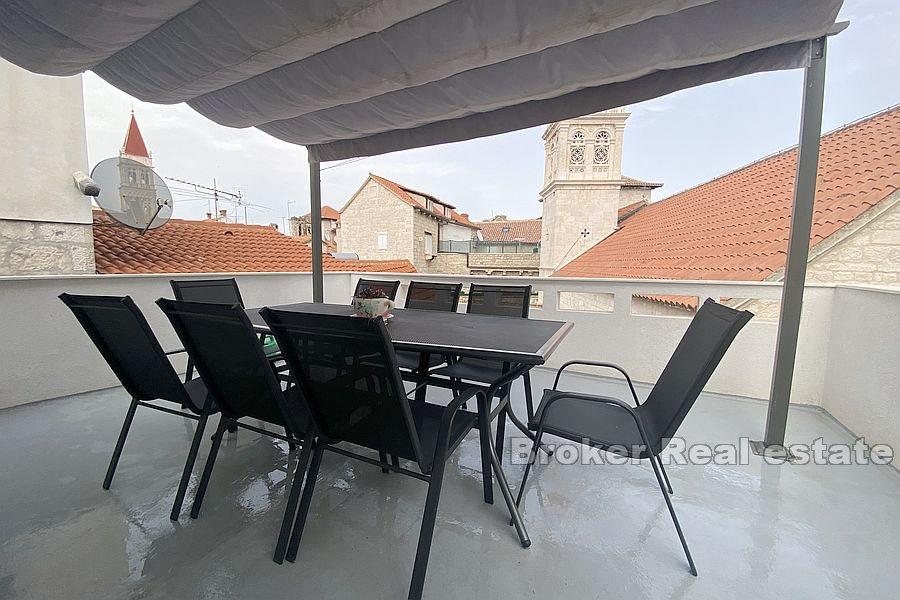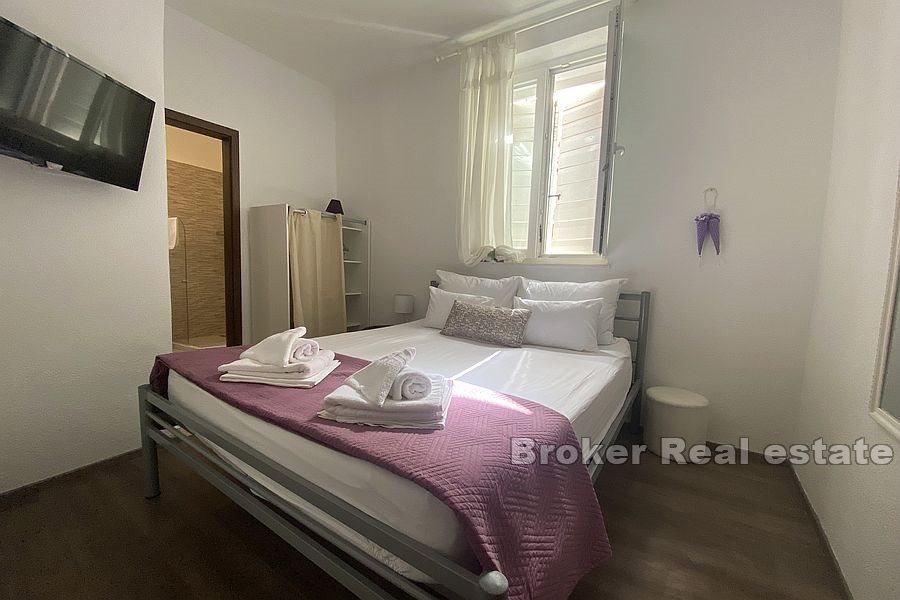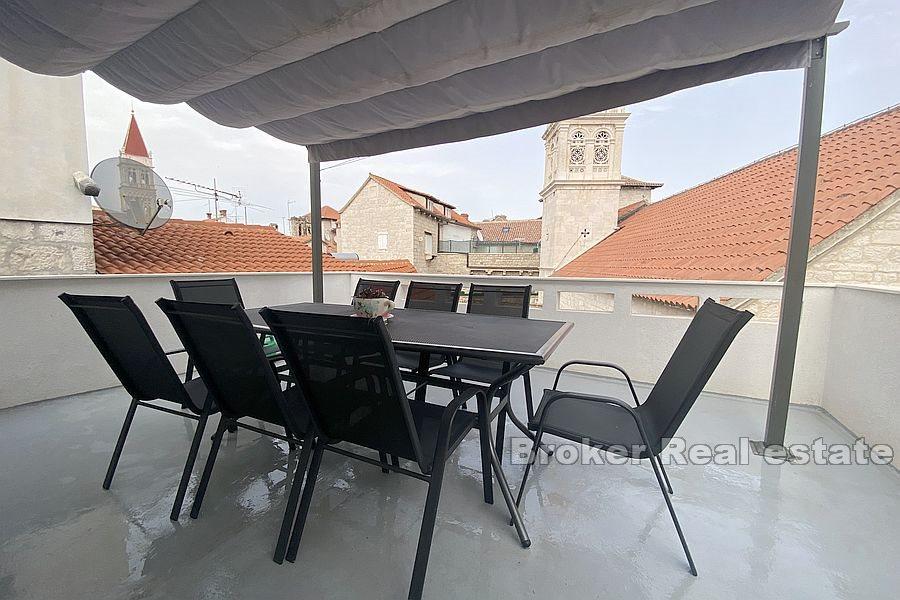

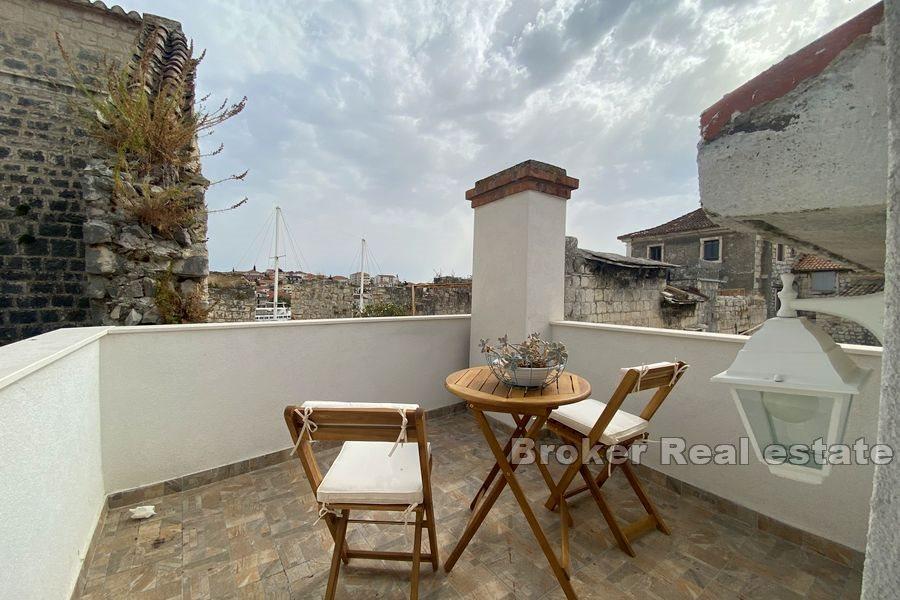

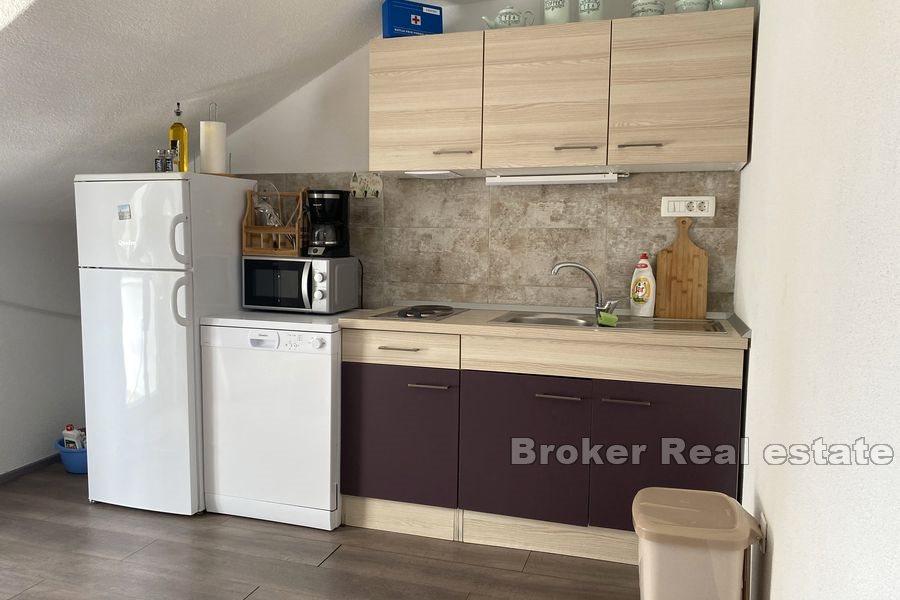

Croatia, Dalmatia coast, Trogir - Autochthonous Dalmatian house in the center of Trogir
ID: 2027/32Basic information
Living space:173 m2
Bedrooms:3
Bathrooms:3
Floors:3
Property advantages
- Sea view
- Stone house
Amenities
- Energy Certificate
About the property
Stone house for sale in the center of Trogir near the waterfront.
It consists of a ground floor with a small storage room and three more floors.
On the first floor there are two bedrooms and two bathrooms.
On the second floor there is a large master bedroom, living room and bathroom.
On the third and last floor there is a kitchen and two beautiful terraces. One terrace is on south and has a sea view, while the other terrace is positioned on east and has a beautiful view of the old city center.
The house is located in an attractive location near all important facilities: Trogir waterfront, city square, church, restaurants, cafes and shops. Distance from the sea is 15 meters.
Except for personal use, it is ideal for tourist rental as a whole or there is a possibility to make three independent apartments.
Location
Trogir, Dalmatia coast
Trogir is a historic town and harbour on the Adriatic coast in Split-Dalmatia County, Croatia. The historic city of Trogir is situated on a small island between the Croatian mainland and the island of Čiovo. It lies 27 kilometres west of the city of Split. Since 1997, the historic centre of Trogir has been included in the UNESCO list of World Heritage Sites.
Are you looking for something else?


